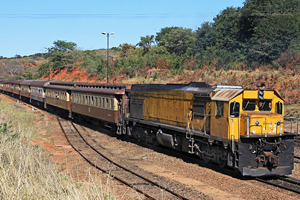Allied Timbers abandons contract milling

Martin Kadzere Senior Business Reporter
ALLIED Timbers has abandoned contract milling and is now in the process of acquiring own equipment as it seeks to improve viability and ensure resource sustainability. The state-owned firm was contracted to 50 saw mill operators in an arrangement where the harvested timber was equally shared between the company and the contractor. The arrangement was to cover Allied’s production shortfalls since it did not have adequate capacity and was also used as black empowerment tool. According to last year’s budget, contractors were supposed to contribute 32 percent of Allied’s annual production.
Last year’s contracts expired in December and the company had invited bids for 2016. However, yesterday, Allied issued a statement that the process had been cancelled. Allied Timbers’ primary business includes timber harvesting, reforestation forest management, saw milling logs, value addition of timber and distribution of various timber products.
A source said the company has decided to discontinue the arrangement after establishing that the rate at which the forests were being extracted was unsustainable. The arrangement also created competition for Allied as prices for its products were much higher than those charged by contractors for similar products.
Allied Timbers secured a loan from a local financial institution to buy new equipment and production will be significantly curtailed to allow deployment of the new equipment.
“If you move around, you will notice that our product is everywhere but the company has nothing to show (for it),” said the source who requested anonymity. “The arrangement has created competition; we can’t compete yet they are getting the product form us.
“While the argument may be that it is the only option in light of financial problems, the management feels it is not a sustainable way of doing business.” No official comment could be obtained from Allied by the time of going to print yesterday. An internal audit was carried out late last year, which revealed various anomalies in the tender system.
It highlighted that there was no transparency, as the arbitrary awarding system was amenable to corruption and conflict of interests and unsustainable harvesting of forests.
“Further analysis reveals that contract milling was supposed to contribute 32 percent to Allied’s annual production budget but as of September (2015) the contribution was 41 percent; then why was a budget limit put in place if it cannot be observed, especially for timber production, which is guided by sustainable cut or allowable cut not to disrupt normal forestry circles,” said the special audit report on contractors.
“Exceeding budgetary allocations excite contractors as it means more access to timber product over and above the contracted volume and the issue to ATZ forestry is of no concern to them.
“This might appear like a benefit (to the company) in the short-term, as it covers ATZ’s own production shortfalls but it will (negatively) impact the future forestry sustenance.”
The report shows that by September 30 last year, the budgeted volumes of 2015 had almost met. However, it also highlighted some financial savings under the contract milling arrangement. For instance, the company saved $2,5 million in nine months to September under the contract milling system.











Comments